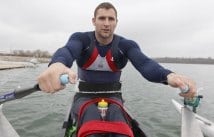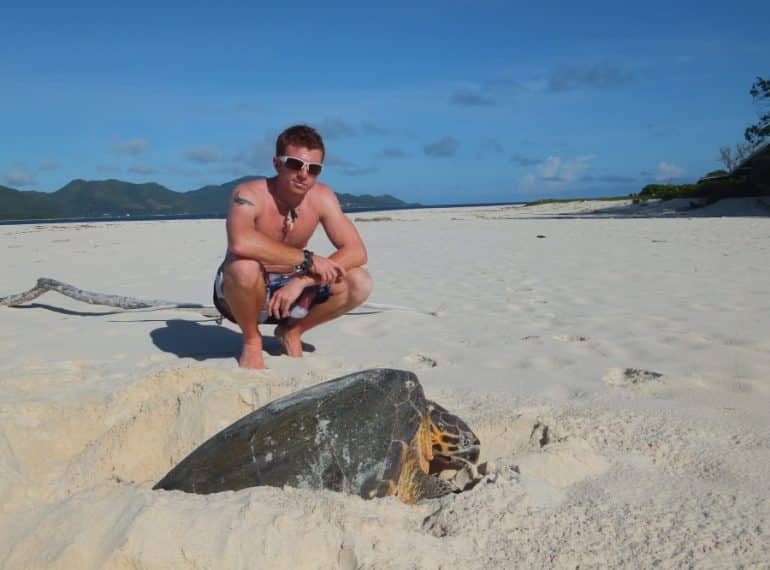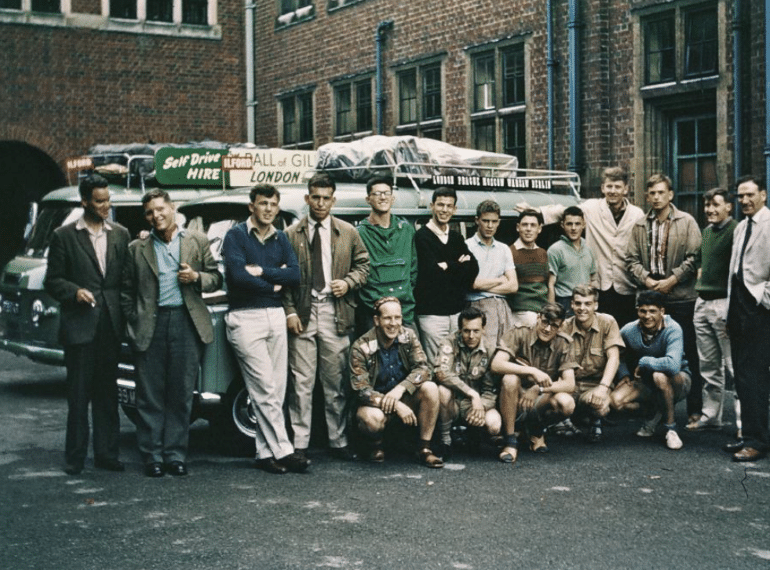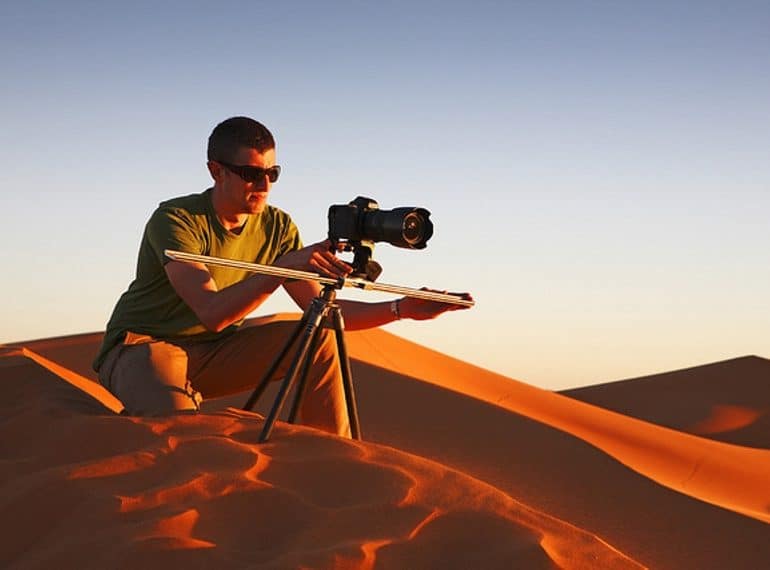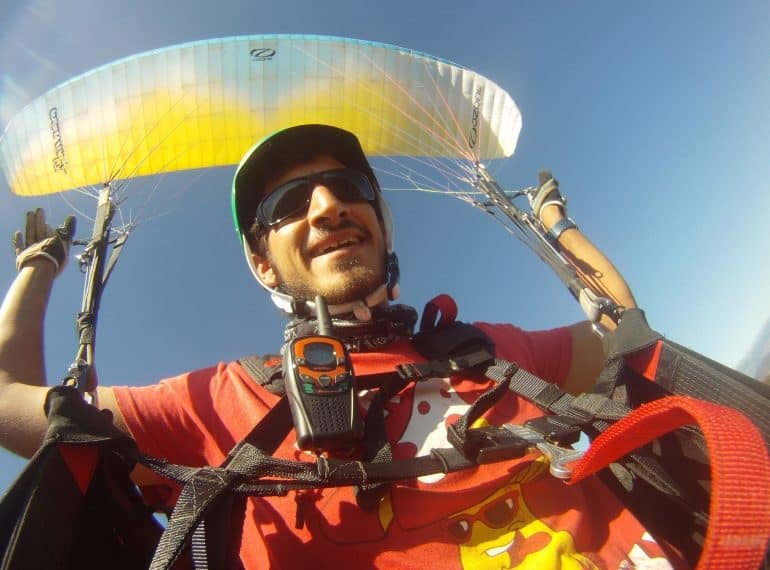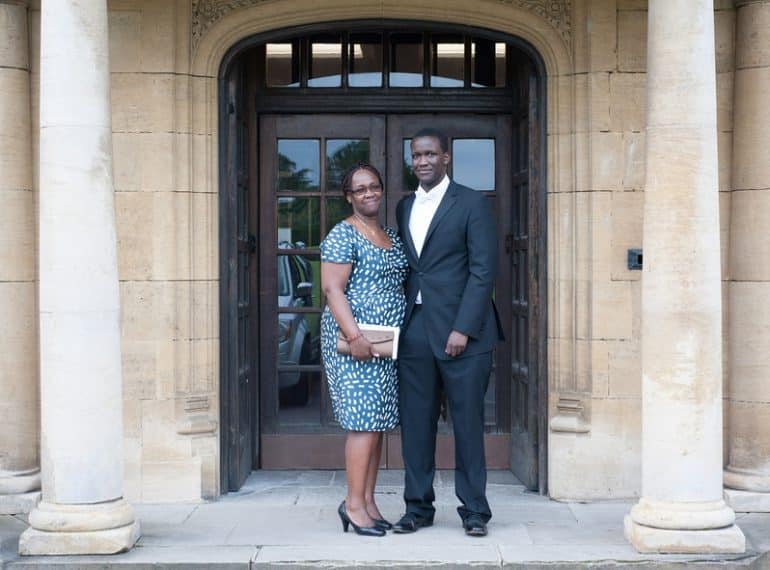
When Claude Francois Muhuza arrived in the UK in 1996, aged just six, he spoke no English and had received no formal education.
Since that time Claude (2001-2008), who was guest of honour at this year’s QE Junior Awards ceremony, has not only achieved high academic success, he has also thrown himself whole-heartedly into supporting human rights causes. In October he will be heading out to Nicaragua on a three-month volunteering placement with the charity, Raleigh International.
“I enjoy the study and the application of law, but one of my other passions is learning about international development and the way developing countries around the world pursue economic growth,” he explains.
Claude was born in Kigali, Rwanda, where he lived until he was four, when the outbreak of war forced his family to flee. For two years he was moved from country to country, living in Tanzania and Kenya, before settling in the UK with his mother. His first experience of education was at Harlesden Primary School, where he not only learnt English, but also revealed latent academic potential: at the end of Year 6, Claude was awarded the Harlesden Primary Cup for academic achievement.
Whilst at QE, Claude amassed nine A* grades at GCSE and four As at A-level (the top grade at that time, before A* was introduced). During his time at QE he began to pursue his interests in law and human rights, spending a week shadowing two judges at Southwark Crown Court. In 2007 he was appointed Vice President of the European Youth Parliament Regional Session, which required him jointly to organise, co-ordinate and lead a regional debating forum. The following year he represented the UK in international debating forums in Greece and Turkey. He used his work experience placements to gain an insight into trading and international banking, with placements at Morgan Stanley in London and Merrill Lynch in New York.
From School, Claude progressed to Pembroke College, Cambridge, where he graduated in Law and won the Crowden Award for Outstanding Contribution to College Life. Once again Claude did not restrict his interests to the purely academic: for three years, he was a member of a committee concerned with fundraising for Pembroke College. One of its roles is to raise money for an African Scholarship scheme which provides a fully-funded place for a student from Africa to study at Pembroke. In 2009-2010, in his second year at Cambridge, Claude was President of Pembroke College Student Union, where he oversaw an overhaul of the constitution, an increase in charity work and the creation of an extra Access position on the JCR (Junior Common Room). The role also involved organising Freshers’ Week and welfare events throughout the Summer Term, as well as representing his fellow Pembroke College students at the University Students’ Union.
After graduating in 2011, he worked for Pembroke College at a summer school. He also spent a few weeks in Panama working with a charity called Global Brigades as a member of the first Cambridge Law Brigade.
Since September 2011, he has been studying at the College of Law in order to complete the Legal Practice Course (LPC), which will allow him to work as a solicitor.
Claude is now looking forward to his autumn placement in Nicaragua with a project based in a rural community. He hopes to work with local craftsmen to help them understand the principles for constructing composting toilets and with farmers to support them in developing a livelihood from the use and sale of crops. “I chose to engage in this project because I knew that I would gain hands-on practical experience of international development and the work of NGOs,” he says.
On his return, Claude will take up a training contract with Baker & McKenzie, a commercial City law firm, in March 2013.

